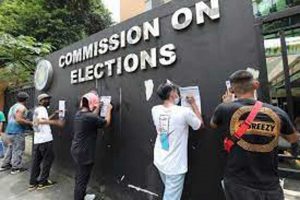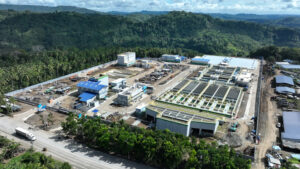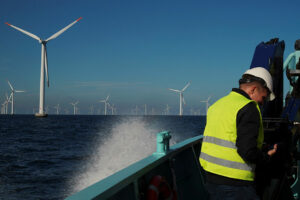2023 PHL ‘hot money’ swings to net outflow amid high key rates

FOREIGN PORTFOLIO INVESTMENTS that left the Philippines outweighed those entering in 2023, as rising interest rates and elevated inflation dampened investor sentiment.
Data from the Bangko Sentral ng Pilipinas (BSP) released on Thursday showed foreign portfolio investments registered with the central bank through authorized agent banks posted a net outflow balance of $247.3 million (P14 billion) last year, from a net inflow of $886.7 million in 2022.
In December, the so-called “hot money” balance was a $205.18-million net outflow, a reversal of the $672.86-million net inflow a month earlier and $92.95-million net inflow a year ago.
Foreign portfolio investment is called “hot money” because of the ease with which they can enter or leave a jurisdiction, as opposed to foreign direct investment, which is considered less fickle.
Rising borrowing costs globally to combat inflation resulted in hot money outflows last year, particularly due to rate increases from the US Federal Reserve, Robert Dan J. Roces, chief economist at Security Bank Corp. said in a Viber message.
“This made holding assets in emerging markets like the Philippines less attractive to foreign investors, who could get higher returns in developed markets,” he added.
The US central bank hiked the Fed fund rate by 525 basis points (bps) from March 2022 to July 2023 to quell inflation. This brought the Fed’s key rate to 5.25-5.5%.
Concerns over a global recession, supply chain disruptions, geopolitical tensions and slower China growth also dampened investor sentiment last year, which deterred investments in emerging markets, Mr. Roces said. “Domestically, we had elevated inflation as the main challenge,” he said.
Inflation slowed to 3.9% in December from 4.1% in November, settling within the central bank’s 2-4% target for the first time in nearly two years.
But it averaged 6% last year from 5.8% in 2022, the second straight year that inflation breached the BSP’s 2-4% target.
“Add to this the widening current account deficit, which ballooned in 2023, reflecting strong import demand against weaker export earnings,” Mr. Roces said. “This raised concerns about the country’s external balance and potential currency depreciation, leading to some capital flight.”
The BSP posted a current account deficit of $10.9 billion in the nine months to September, equivalent to 3.5% of economic output.
BSP data showed gross inflows in December hitting $1.07 billion, 1.8% lower year on year, and 31.8% lower than a month earlier.
Over the full year, gross inflows increased by 4.5% to $12.89 billion.
Five countries accounted for 83.3% of short-term foreign investments in December — the United Kingdom, Singapore, the US, Luxembourg and Hong Kong.
About 53% of their investments went to Philippine Stock Exchange-listed shares of banks, holding firms, property, transportation and food producers. The remaining 47.1% was invested in government securities.
In December, gross outflows totaled $1.27 billion, up by 27.1% year on year and by 40.8% higher than November. This brought the full-year gross outflow to $13.13 billion, rising by 14.6% from a year ago.
While continued outflows are possible in the first half of 2024, a return to net inflows could occur if the global economic environment stabilizes and interest rate hikes slow down, Mr. Roces said. Net inflows are also possible if domestic inflation is brought under control and the current account deficit narrows, he added.
The BSP hiked borrowing costs by 450 bps from May 2022 to October 2023, bringing the key interest rate to a 16-year high of 6.5% to tame inflation.
BSP Governor Eli M. Remolona, Jr. earlier said the central bank is unlikely to cut borrowing costs at its meeting on Feb. 15 because rates need to be sufficiently tight amid evolving risks to inflation.
At the December meeting, the BSP’s risk-adjusted inflation forecast stood at 4.2% this year and 3.4% for 2025. Its average inflation baseline forecast is 3.7% for 2024 and 3.2% for next year.
The BSP expects hot money to post a $1.7-billion net inflow this year. — Keisha B. Ta-asan




